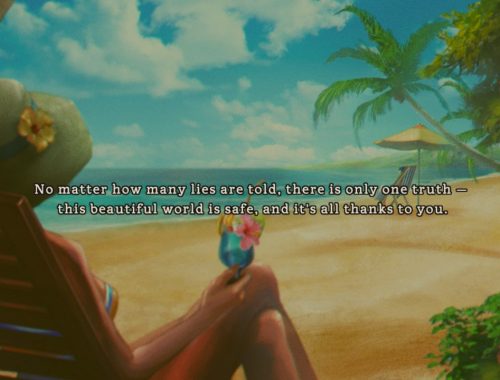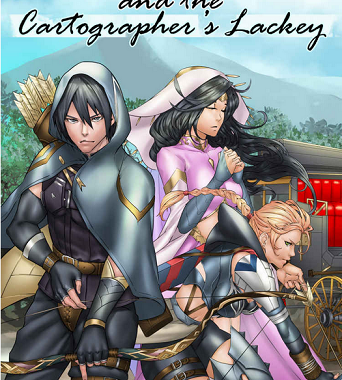You Should All Read a Book by Kris Schnee
Note: this editorial contains several affiliate links. If a purchase is made through it, in theory I get a kickback.
This year I read more works of fiction than I had in the entire 8 years prior (source books for games not included.) This was in many ways a good thing. I was able to experience the worlds of several different indie authors, see what made them work, and see what stories they were looking to tell. One of those authors was Kris Schnee, whose stories of a near-future world where people’s brains can get scanned into several competing sandbox-style game worlds continues to keep me coming back for more. Despite that, I feel like he doesn’t get the traction he deserves, so I’d like to share a bit about the works of his I’ve read and why I like them.
I don’t know much about the author himself, despite speaking with him a bit over social media. His Amazon profile and a blurb in his books state he was a lawyer, he studied at MIT, and he apparently has trained parrots. What I know about him from the half dozen of his stories I’ve read however is a lot less dry. The guy gets the different ways different people approach games. He has a very interesting understanding of Artificial Intelligence and how it might interact with people and with other AIs. He’s an optimist but he understands that doesn’t always mean the best thing that could happen will happen, so it’s important to prepare. Also, he does really solid work with his anthro characters and how former humans advance towards being different styles of anthropomorphism, which is both a solid metaphor for becoming less “human” and more in tuned with the machine world and also really fun if you’re a reader who enjoys those type of characters.
Most of his books take place around a game called “Thousand Tales.” Thousand Tales is a sandbox style game that plays across different genres and systems, but with two notable and interesting catches. The first is that the game is domineered by an AI named Ludo, which is often played as altruistic towards humanity even as her actions could be seen by some political opponents as trying to outright remove them from the planet. The second catch is that while many people play the game via VR and other traditional means, “uploaders” can have their conscience moved to the game servers and they can essentially live in the game indefinitely. Depending on the timeline that the books take place in, this process is initially rather expensive and thus those who are uploaded are selected rather carefully but over the course of a decade the technology gets to the point where almost anyone can be hosted. Different books address different aspects of this, such as “is the person’s conscious really them” or “what will happen to humanity when everyone is either dead or uploaded?” There’s also a political back story where the United States is fractured, China has expanded its power (with its own AI), a rogue AI trying to save the earth starts attempting to destroy the humanity that won’t bow to it, and in the wake of this several free states come into being.
All this is outside of the game. Inside the world of Thousand Tales is amazing to see, and a lot of the stories take place there. Characters and players explore areas ranging from moon bases they can mine to fantasy worlds they can explore; city scapes with attached classrooms and threats between the two and oceans with islands to explore. The system as explored is surprisingly not stat heavy, and have stayed very consistent from story to story. An interesting concept is that each area within the game world usually has an AI overseeing it, kind of like a Game Master, that can make decisions on the fly to benefit the player as needed. If a character wanted to use an item a unique way or approach a challenge in an unusual manner, there is a force that can address that. This makes sense in the game world, but more importantly helps everything feel fluid and dynamic.
His stories are usually around 300 pages each, give or take a few dozen. Their digital versions are often very affordable, at around $2-$4 American. Almost all of them are available via the Kindle Unlimited platform, which means that with a monthly subscription all of them can be read and enjoyed.
A few thoughts from some of the books I have read:
In Central America, a missionary named Robin is doing his part to run a plantation in war-torn Central America, in the fictitional nation of Cibola. The network that is used to teach children sciences and help residents with their day to day runnings is connected to the Thousand Tales servers. Robin feels like an outsider and doesn’t want to step on the toes of the outsiders; this ironically makes the outsiders think less of him. They want someone willing to be a part of their community and get his hands dirty. An awakened AI named Lumina was supposed to ally with a player of the game, but that player was killed in a terrorist attack; events have Lumina instead migrate to Cibola where she meets up with Rob. The two eventually work together to overcome issues the game world, its servers, and the country of Cibola are facing. Themes of what it means to be free and what it means to be human are both observed. This story does a great job of telling two different stories and bringing them together to merge wonderfully into one. I’d argue it’s the best of the stories I’ve read in showing how people outside the world of the game interact with the game and how people and AI in the game interact with the outside world.
Tower of Sol: A GameLit Novella
In a world where much of humanity has either died out or been uploaded, what happens when a settlement that has survived gets a strange challenge from robots controlled by an AI? The challenge is strange: fight to the top of a tower. If anyone survives, the town won’t be harassed by the AI for a year. Sven, a former soldier and now survivalist who has an intrinsic hatred for AIs and the world they proselytized, makes the decision to climb the tower himself as to spare the town. He’s sure it’s a trap, he just can’t figure out to what end. This is one of Schnee’s shorter works, and the plot twist is one most people won’t see coming. It’s an interesting take on an already unusually held premise.
Thousand Tales: The Great Sage
Phoenix was a child who was uploaded by his parents to save him from certain death. Now he’s growing up in a digital world. This is an unusual coming of age short which addresses certain issues of the world these books take place in. What powers does the AI have over the players that have uploaded into the game? How can one truly be themselves and be sure they aren’t being controlled or censored? What does it mean to grow as a person when that person is actually now a gryphon inside of a game world? I personally had some issues with how some of the adventure was handled, but I’d still recommend this book for a read.
This book is a stand-alone fantasy adventure that does not take place in the overarching stories portrayed in Thousand Tales. In this, the main character Dominic must come to terms with what it means to have the power of magic, and how having a little power is sometimes worse than having no power at all. It’s solid fantasy that plays well off of what the author has done in some of his previous works, but eschews game elements for a more realistic and grounded high fantasy setting. There’s a feeling that Dominic not only must rise to the challenges set up for him, but there are real consequences for failing.
Schnee is fairly prolific. I’m assuming as time goes on he’ll continue to tackle the merge between the Thousand Tales world and the real world, the way Artificial Intelligence interact with humankind and how humankind interacts with it. One thing I will say is that I’d have no problem recommending his works as Young Adult fiction; there is little in these novels that I wouldn’t be okay with my teenage son reading. I can’t say that for a lot of the stuff I’ve read this year! It handles romance that comes up tastefully, the violence is fitting but never overglorified, and the themes are usually relevant.
In a round about way, what I’m saying is I’d trust Kris Schnee and I’d recommend his books readily, but I’d never trust Ludo.


